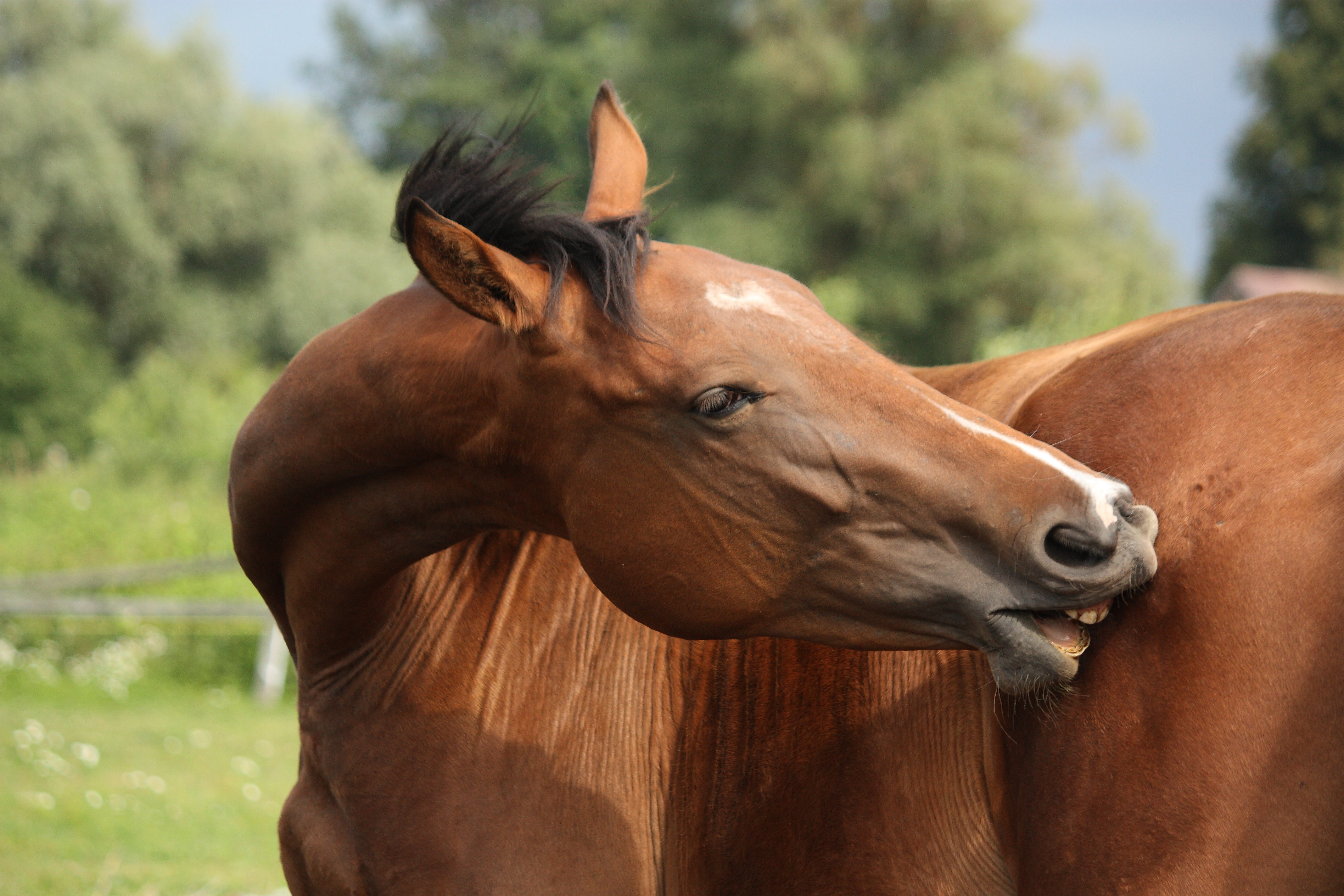Home > Horse Care > Susceptibility to sweet itch investigated
Susceptibility to sweet itch investigated
- June 10, 2025
- ⎯ Christine Barakat with Mick McCluskey, BVSc
A long-term study from the Czech Republic confirms that horses can inherit a susceptibility to the allergic skin condition known as “sweet itch,” which is technically known as insect bite hypersensitivity (IBH).

A reaction to the saliva of culicoides and other biting midges, IBH often causes itchiness so intense that horses rub affected areas hairless or raw. It has long been suspected that IBH is inherited because the problem is more prevalent in particular breeds, such as Icelandic Horses.
The Czech study focused on Old Grey Kladruber horses, a native warmblood breed, at the National Stud in Kladruby and 10 private breeding facilities. The same person visually inspected the horses over a period of 13 years, from 1996 to 2009, scoring the severity of any signs of IBH at each observation. A total of 1,209 observations were entered in a database, along with information about each horse, including location, age and pedigree.
Click here to learn about promising research into a sweet itch vaccine.
In statistics, the degree of a trait’s heritability is expressed on a 0 to 1 scale, with 0 meaning that none of the variability of the trait among individuals is the result of genetics and 1 meaning that genes are responsible for all the variability. The Czech researchers found the heritability of sweet itch susceptibility among the study horses ranged from 0.305 to 0.626, depending on the factors considered in the calculations. These numbers, the researchers say, indicate the heritability of sweet itch is “medium to high, so there is a possibility to reduce the prevalence of IBH by selection.”
Reference: “Genetic parameters of insect bite hypersensitivity in the Old Grey Kladruber horse,” Journal of Animal Science, January 2017
This article first appeared in the EQUUS Volume #378
Don’t miss out! With the free weekly EQUUS newsletter, you’ll get the latest horse health information delivered right to your in basket! If you’re not already receiving the EQUUS newsletter, click here to sign up. It’s *free*!





